Hello everyone and welcome to the Q Lab’s live blog from our final peer support workshop taking place 21 March in London.
The workshop will bring together 35 people from across health and care (and beyond) to reflect on what we’ve learned and to explore what’s next for attendees and their work on peer support.
The live-blog is our attempt to capture the spirit of the day; the activities that we do and the discussions that we’re having. It is written in real-time by Jenna (Q Lab communications manager) and Sarah (Q Lab events coordinator). Please feel free to comment below and get involved.
We’ll also be tweeting from @theQCommunity (#QLabs). We will feedback any questions and/or thoughts into the workshop.
21 March – afternoon session
16:30 And that’s a wrap!
We’re sad to say that the final peer support workshop is done!
Can’t believe we’re nearly at the end of the workshop! Really enjoyed running the two insights relay sessions this afternoon where people shared their insights and experiences about their #Qlabs journey. Thank you to everyone who came all the way from across the UK! pic.twitter.com/LSJAxLEEIe
— Zoe Brewster (@HeartyBento) March 21, 2018
Thank you so much to everyone who came and participated. We’re now really excited to hear how everyone will take their ideas and projects forward.
The full write up will be up online in the coming weeks, as will a summary of our peer support learning for those applying with peer support projects to the Q Exchange.
You are part of the Lab family; a unique group that was involved with the first ever Q Lab project. We’ll keep in touch with you, filling you in on the next steps for the peer support work and we would love to hear how your ideas, networks and peer support work is progressing.
16:10 Closing remarks
We are now back together for a final few words from Tracy and a short close. Although this is our final workshop on peer support and might feel like the end, it is hopefully the beginning in many ways.
A quick recap on the pieces of work and how we will take these forward over the next few months:
- We shared some of the results of the decision making survey with attendees this morning. We will be writing these up and feeding in the comments and ideas we heard today. These will be ready to share more widely in May.
- We have started an early draft of a peer support learning document, which tries to pull together our collective knowledge from this year. Once this is complete, we hope it will provide useful insight for those who haven’t been involved with the Lab, or people looking to find out more on peer support.
- Work will continue with National Voices to develop the evidence portal and to take this forward.
Tracy also added some comments on the second Lab project, that the Lab has been given further funding for, from the Health Foundation:
- In some ways, the second project will look and feel the same: for example, focusing on a single challenge and working collaboratively and creatively with diverse groups of people.
- One of the things we will be trialling next year is working with a topic partner. We think it’ll be an exciting opportunity to leverage even more expertise and networks by collaborating with an organisation. We don’t yet know who that will be but we’re having some exciting conversations so watch this space.
15:57 Insight merry-go-round
Next up is part two of the insight relay – the insight merry-go-round. With everyone to their feet, you stand to form two circles, one inside the other, so people are facing each other in pairs. On the ding of a bell, each circle steps one space to the right.
This was fun: an insights merry-go-round! #qlabs pic.twitter.com/8NTSRlW8tK
— Jenna (@jen_collins) March 21, 2018
Each pair answer takes it in turns to answer a question. There are 7 questions, so 7 rounds:
- My main take-away from the Q Lab is…
- I’m looking forward to…
- What I value about peer support is…
- Something that takes my breath away is…
- My favourite thing about Q Lab is…
- What inspires me is…
- I can and I will…
- My hopes for the future are…
- I am now going to…
15:45 Pass the insight
Everyone on the table now has the chance to read the takeaways from others on their table. When the bell rings each card is passed one space to the left and the new person to receive the card can add comments or embellish the card if they want. We have variety of stickers available to help!
The last task of the day. Thanks for the comments. @theQCommunity #QLabs pic.twitter.com/OzHcxVV9Ya
— Jonathan Broad (@QIPatient) March 21, 2018
15:35 Insight relay
The last exercise of the day is going to be an insight relay followed by an ‘insight merry-go-round.’ It’s split in to two parts – starting off with some quiet time to reflect, followed by an activity which gets everyone to their feet.
We start with the insight relay, which is led by Zoe. Attendees have a few minutes to think and then write down their one main takeaway from the Lab journey in the middle of the card.
The insight can be anything – a new skills they learned, a fact, an anecdote or even just something they have enjoyed this year.
Final session from #Qlabs workshop – an insight relay! Taking what we’ve learned during past 12 months on #peersupport and collectively adding to those insights pic.twitter.com/fq8F7WNjWf
— The Q Community (@theQCommunity) March 21, 2018
15:30 On to the final session of the day
Tracy is now introducing the final session of the day which is about looking forward. In this last hour we are going we are going to take a look back on our learning from the year and make plans for what comes next.
14:30 Reflect with RAND
The Lab is being externally evaluated by RAND Europe who are leading this session. The purpose of which is to help those involved with the Lab reflect on their experiences and to get their feedback on what could be improved for future Lab projects.
Lab participants are also being asked for their feedback on the Lab’s impact model – a high level framework outlining the impact that the Lab wants to have and how we plan to achieve it.
14:15 Feedback from the discussions
Given the number of – and depth – of the discussions, it is a challenge to capture on a live blog what was discussed and the essence of those discussions. However, are some snippets of what we heard back:
- That Facebook is still a viable platform for peer support groups
- For the table talking about the Q Exchange, questions were answered about the role of non-Q members and how they can engage with the process
- The group talking about peer support websites and platforms, the group discussed the importance of connecting individuals (in the same way dating sites do) and the need to look at what is being done already so we’re not reinventing the wheel (for example, Health Unlocked)
- The discussion looking at peer support for people wanting to set up peer support, shared with the group how setting up peer support is great, but there are often barriers about how far you can take peer support. Barriers such as funding, getting services commissioned, making the case to health care professionals. One suggestion was a body or ‘association’; not to professionalise peer support, but to be a voice and to push peer support forward as whole.
13:34 The following ideas are now being discussed by attendees.
40 minutes for ideas and discussions.
- Link peer support to existing services and service improvements
- Being innovative in changing misconceptions about whether peer support works or not
- Q Exchange ideas and partnerships – let’s get together
- Give me my feedback on my Q Exchange ideas – highly trained patient-centred QI experts
- If we created a national peer support website – what would it look like?
- Getting health care professionals to understand and engage with peer support
- Using online platforms to support and embed peer support in the regions
- Help! I don’t know where to start! – peer support for those who want to set up peer support groups
- Face-to-face: Is a Facebook group still a viable option for peer support?
- How to ensure conversations continue on peer support
13:25 Voting for marketplace ideas
Open space time! The group is choosing the topics for discussion #QLabs pic.twitter.com/gh2UTksMol
— The Q Community (@theQCommunity) March 21, 2018
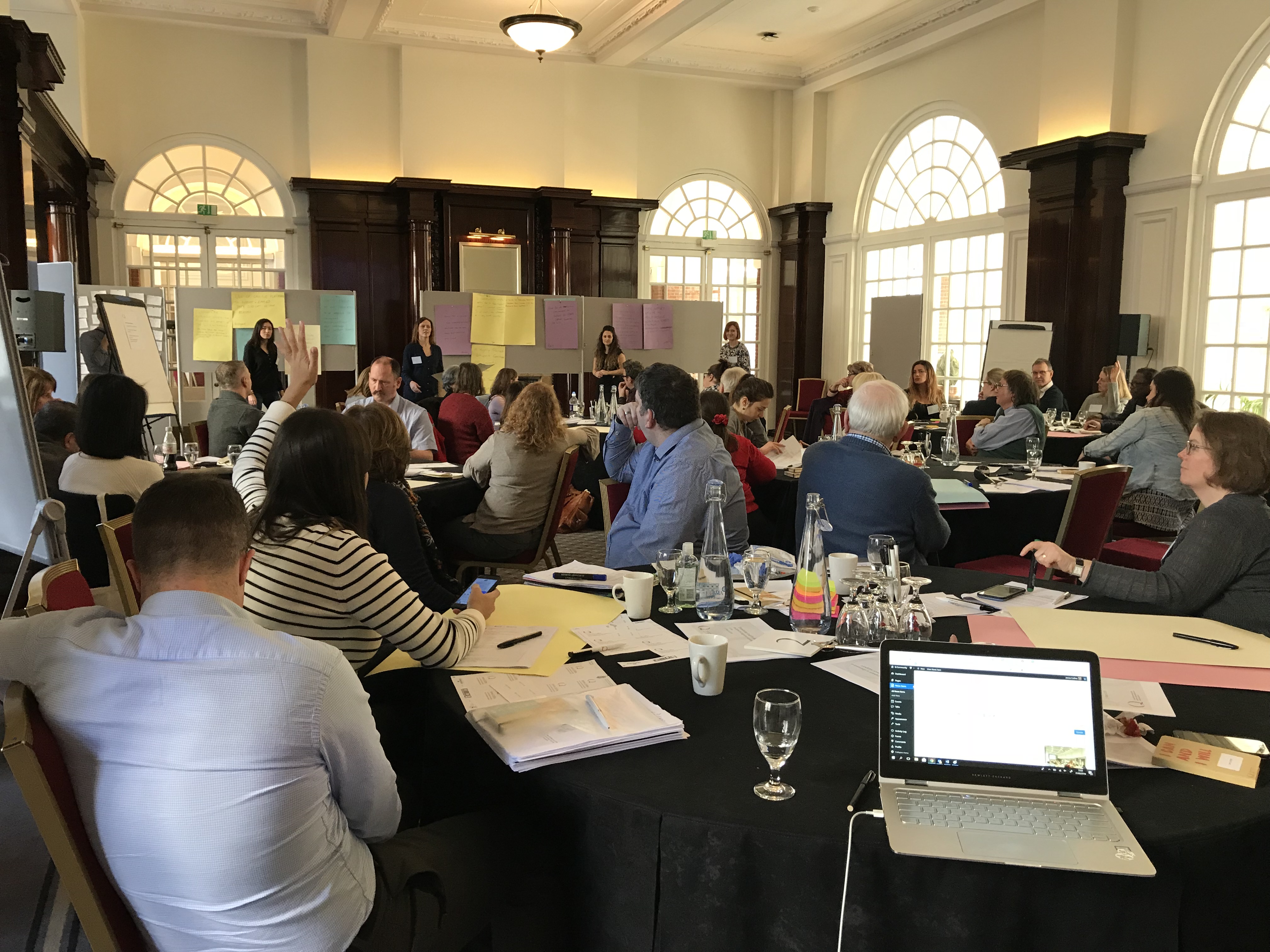
13:11 The Gardeners come forward
Attendees are pitching their ideas:

- Peer support for severe mental illness
- Evidence in peer support – what works
- Link peer support to existing services and service improvements
- Celebrating peer support and building on the momentum
- Peer support in medication safety
- Being innovative in changing misconceptions about whether peer support works or not
- Q Exchange ideas and partnerships – let’s get together
- Give me my feedback on my Q Exchange ideas – highly trained patient-centred QI experts
- If we created a national peer support website – what would it look like?
- How do we get commissioners to invest in peer support for those with long term commissioners
- How can I, as a commissioner, support peer support?
- Getting health care professionals to understand and engage with peer support
- Workplace peer support groups – how can we improve them?
- Using online platforms to support and embed peer support in the regions
- Peer support groups across county boundaries
- Help! I don’t know where to start! – peer support for those who want to set up peer support groups
- Face-to-face: Is a Facebook group still a viable option for peer support?
- How to ensure conversations continue on peer support
What an amazing set of ideas!
Not all will go through – the group now votes on which discussions they would like.
13:05 Discussion marketplace
This part of the day is all about attendees having the conversations that they want to have.
Stacey Lally, Head of Q Delivery, is leading the session. This discussion market place method is based on OpenSpace methods – more information here
How does Openspace work?
- The first space is to have a think or chat about an idea or area that you’d like to discuss. It can be about the Lab, peer support, conversations we’ve had, Q Exchange.
- If you have something to discuss, you’re an ‘organic gardner’: they want to grow the conversation but in an organic way. In this metaphor as a convener of a conversation you are not over managing and using pesticides. You are holding the conversation lightly.
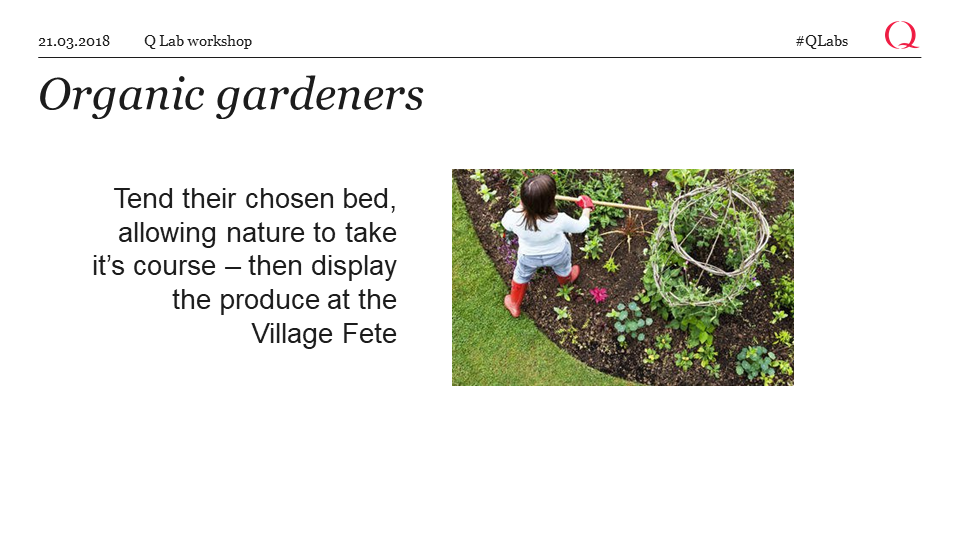
There are other roles in OpenSpace. If you’re not hosting a discussion you can be:
- Bumble bees:
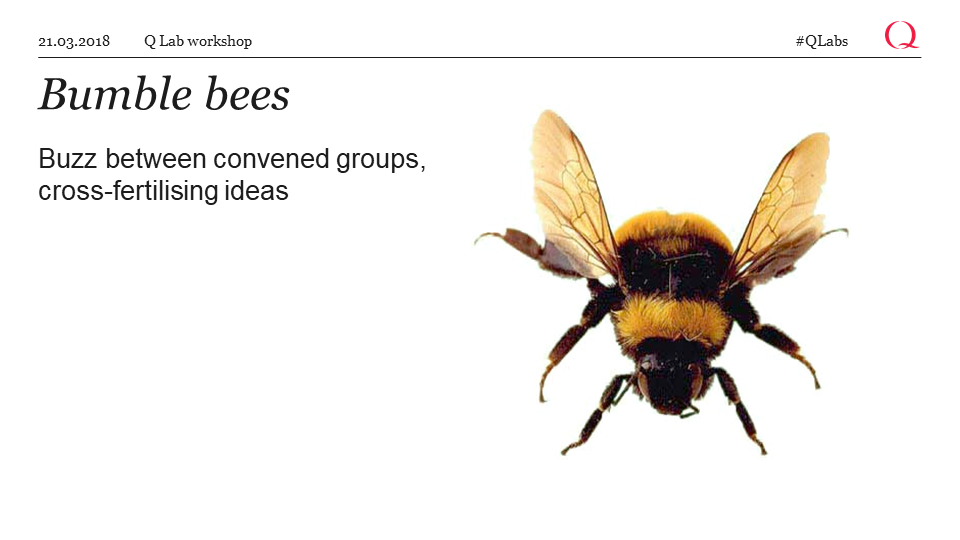
- Butterflies:

Which one are you?
12:55 Peer support projects for Q Exchange
Penny Pereira gives a short introduction to the Q exchange funding opportunity which will be opening soon. It provides one opportunity to take forward ideas and work that have emerged during the Lab process. We hope this may spark any ideas people may have for the afternoon session coming up next.
The Q exchange is a funding opportunity launching in April this year which offers Q members the opportunity to bid for up to £30,000. There is more information on the opportunity available here on the website. You can also find information on eligibility and assessment criteria – there is also an online group you can join to discuss ideas with others.
A great opportunity to bid for <£30k funding for peer support projects through Q exchange. Would love to see some of the ideas generated through #Qlabs taken forward @theQCommunity pic.twitter.com/usIgtG0EWN
— Tracy Webb (@TracyWebb007) March 21, 2018
12:48 Introducing the afternoon
Now back into the room to kick off the afternoon sessions, we start with a quick introduction from Stacey Lally, Head of Q Delivery.
We’re going to have a slight change pace soon with something slightly more energetic to wake everyone up after lunch.
21 March – morning sessions
12:00 Lunch time!
Everyone is taking a well-deserved break to refuel for the afternoon ahead.
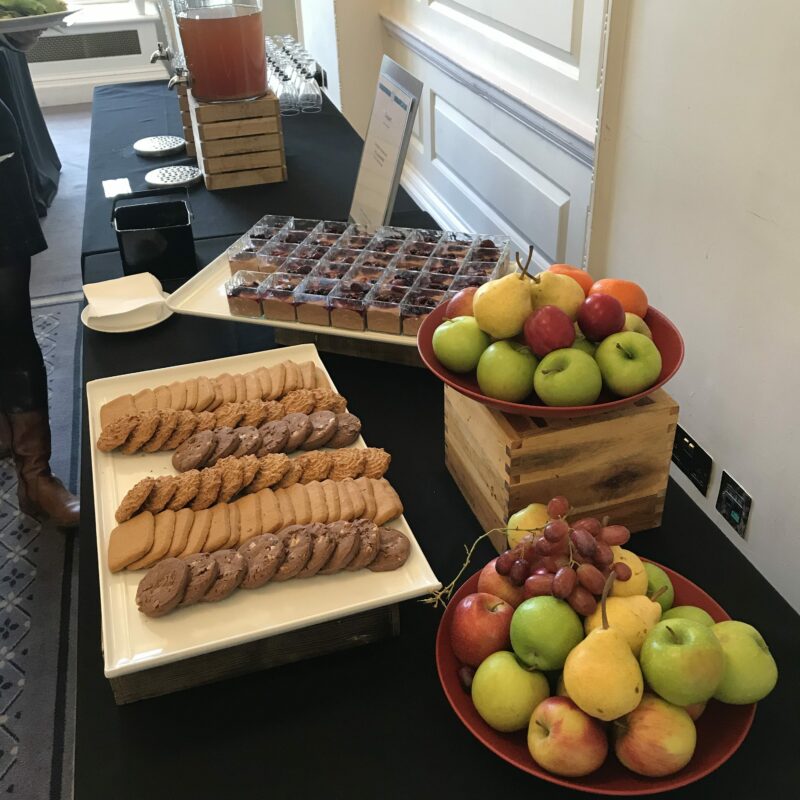
11:56 Feedback and next steps for the Lab peer support group
As the session comes to a close, we have the opportunity to hear back from just a few people in the room with their key thoughts.
- The Lab has given people validation on the use of peer support.
- The profile cards are very popular! They’re a great way of seeing who else is involved with the Lab. You can take a look at them here.
- The people who make up the Lab! We have a hugely positive and diverse range of people working with the Lab this year.
People on my table have said that the Lab feels collaborative and not ‘top-down’. I think a lot of people are going to miss these workshops and opportunities to come together!
The insights from the cards will help to shape the future of the Lab and feed into the decision making around what will happen to the group once the peer support topic ends.
11:47 Making connections in action!
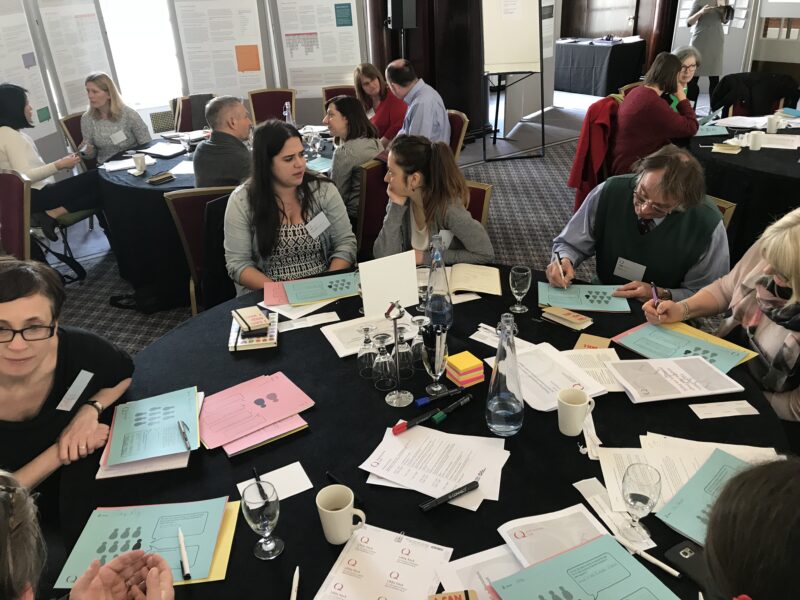
It’s all about connections – time for the group to reflect on the connections they’ve made and the future for the peer support Q Lab community #QLabs pic.twitter.com/63UAk661OR
— The Q Community (@theQCommunity) March 21, 2018
11:28 What makes a valuable connection
It’s time for some individual reflections on how people have made connections through the Lab this year. On different coloured cards, attendees will be answering a few questions about:
- Individual connections they have made this year
- What they value of being a part of this group
- Also what worked well this year and ideas for how this could be improved
Once people have had some quiet time to reflect on each of the cards, there is then the opportunity to have a conversation with someone else on the table to share thoughts.
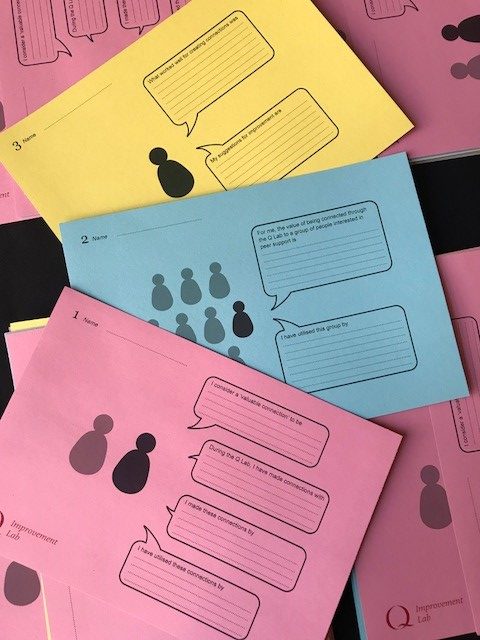
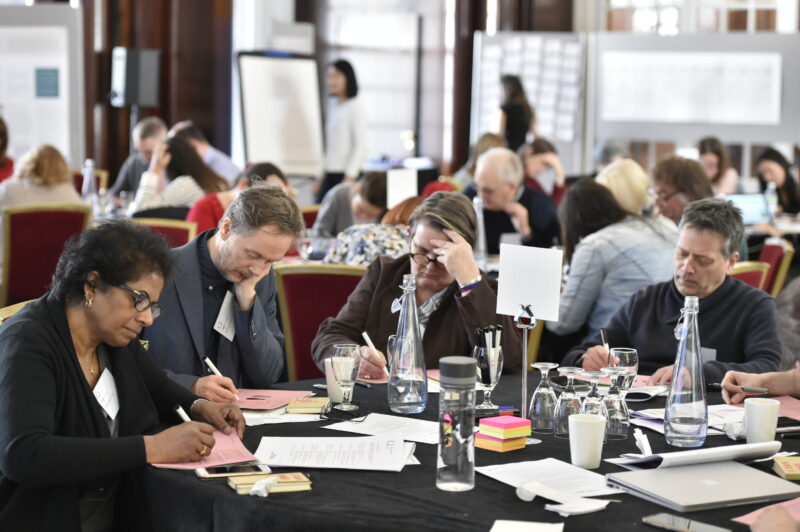
11:20 Continuing connections
We are now on to the second session of the morning, before we break for lunch. In this session we will be looking at how connections can continue for the Lab peer support group.
Last month we started some conversations on how the future of the Q Lab peer support group once the first Lab project comes to an end in the next few months. Libby wrote a blog introducing some possible scenarios which you can read here on the Q website.
We followed this up with a webinar where we discussed if people wanted to stay in touch once the pilot year ends and how this could happen. From this learned that people had an interest in the group continuing beyond April/May this year and that those we spoke to valued the Lab as it gives an opportunity to connect with others.
The aim of the session now is to allow attendees to reflect on what they personally value when it comes to making connections.
These conversations will feed into the decision making around what will happen to the peer support Lab group at the end of the project.
11:02: Activity time! Crowd-sourcing ideas
It’s all well and good having all this data but the important piece of work is thinking about how the findings can be used in practice.
To do that, we are now doing an activity to crowdsource ideas from the group:
- Attendees think of an idea about how the survey could be used (no idea too big, too small or too silly)
- Like pass the parcel, cards are swapped around the room.
- When the music stops (yes, there is music!), you read the idea and give it a score out of 5.
- We do this 4 times until we have a group of ideas that have scores out of 20.
- The best ones can be identified and be developed further!
21.10 Crowd sourcing is a Liberating Structures method. Further details available on their website.
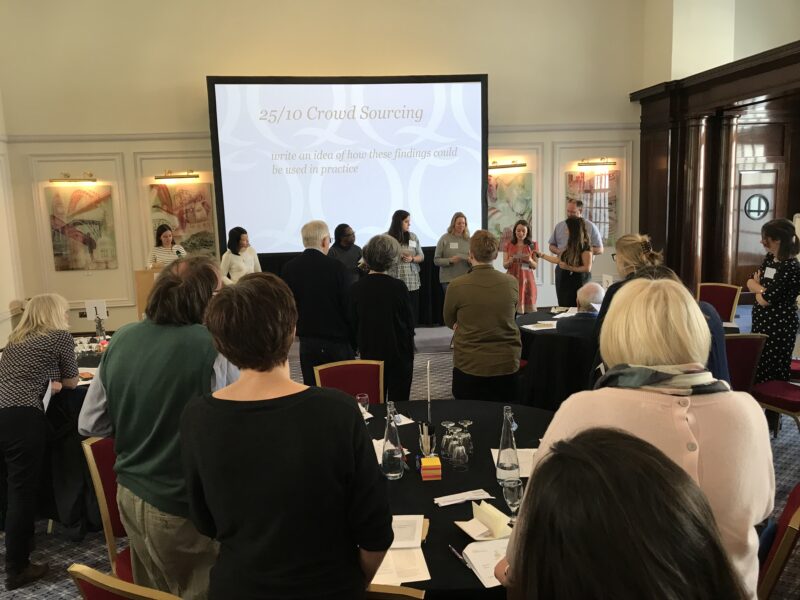
10:53 Q&A
Some good points raised around carers and whether for future surveys we could capture explicitly how informal carers access peer support.
One point that was raised is the BME figures of the survey and how some groups might have different definitions of peer support.
10:37 Hearing from Christina Pagel
Christina Pagel, reader at University College London, outlines the headline findings and her novel methods for analysing the data. Sadly we can’t share the results here (yet! We want to do it properly in the coming months!) but we will be capturing people’s reaction to the results…
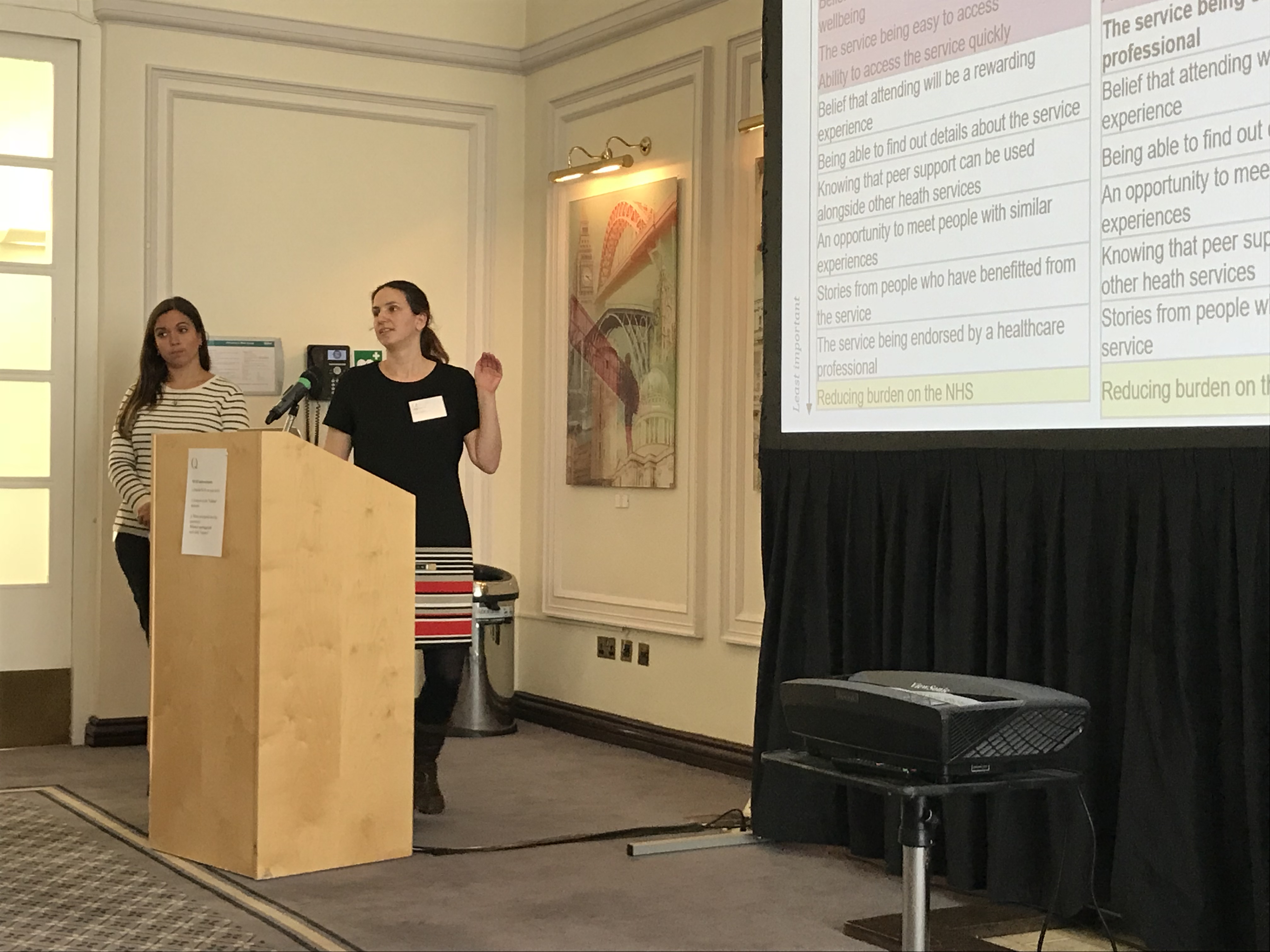
10:36 What matters when making decisions around peer support
Hannah Patel, the Lab’s insight manager is now going to spend some time talking through the Lab’s recent survey on how people make decisions in peer support.
- The survey aimed to better understand decision-making in peer support. Specifically, what influences people when deciding whether to refer, recommend or use peer support.
- With 2666 responses, we believe it is the biggest peer support survey to be carried out in the UK.
- This session today will provide an opportunity for the workshop attendees to reflect on the findings and begin to think about how the might be used in practice to bring about meaningful change.
First item on the agenda: thanking all the Lab participants for helping to design, critique, share and complete the survey.
10:31 Lab notebooks going down a treat!
No excuse! pic.twitter.com/xKM6i3USys
— Hildegard Dumper (@HDumper) March 21, 2018
10:30 What has the Lab learned on peer support
Libby outlines an important piece of work – collating all the insights and findings that the Lab has learned this year. Attendees have an opportunity to give us feedback on this today and we will be sharing this more widely with Lab participants over the coming weeks. We hope this will inspire others to take forward peer support as well as being a helpful tool for those applying with peer support projects to the Q Exchange!
10:28 Introduction – what has the Lab has done so far
Libby gives an overview of the Lab over the past 12 months and how we have tackled the first Lab challenge this year:
- Convene – we needed people with a depth of knowledge and expertise on peer support. We convened a diverse group of people to work with us this year.
- Research and discovery – this involved desk research, interviews and blending traditional research and practice to gather a better understanding of peer support.
- Developing and testing ideas – we wanted to understand where there were areas to make change. In July, we held a two-day workshop to surface ideas and some of the challenges facing peer support.
This led to three main pieces of work:
- Evidence hub – we have been working with National Voices to design and scope an online hub for peer support. National voices will be leading on this work and are in the final stages of scoping the work. The plan to launch it later in the year.
- Decision making survey – we ran a survey last year with YouGov to understand what matters to different groups of people when making decisions on peer support.
- Supporting people to share practical and tacit knowledge.
10:21 Icebreaker
Attendees have been asked to speak to someone they don’t know and stick their names on three posters: one indicating when they first got involved in the Lab, one indicating what their interest in peer support is and the other indicating where in the UK they are from.
Everyone to their feet for an icebreaker. We are looking to surface where our attendees are located, how they are involved with peer support and when they first got involved with the Lab #QLabs pic.twitter.com/Ju2s3NBy8m
— The Q Community (@theQCommunity) March 21, 2018
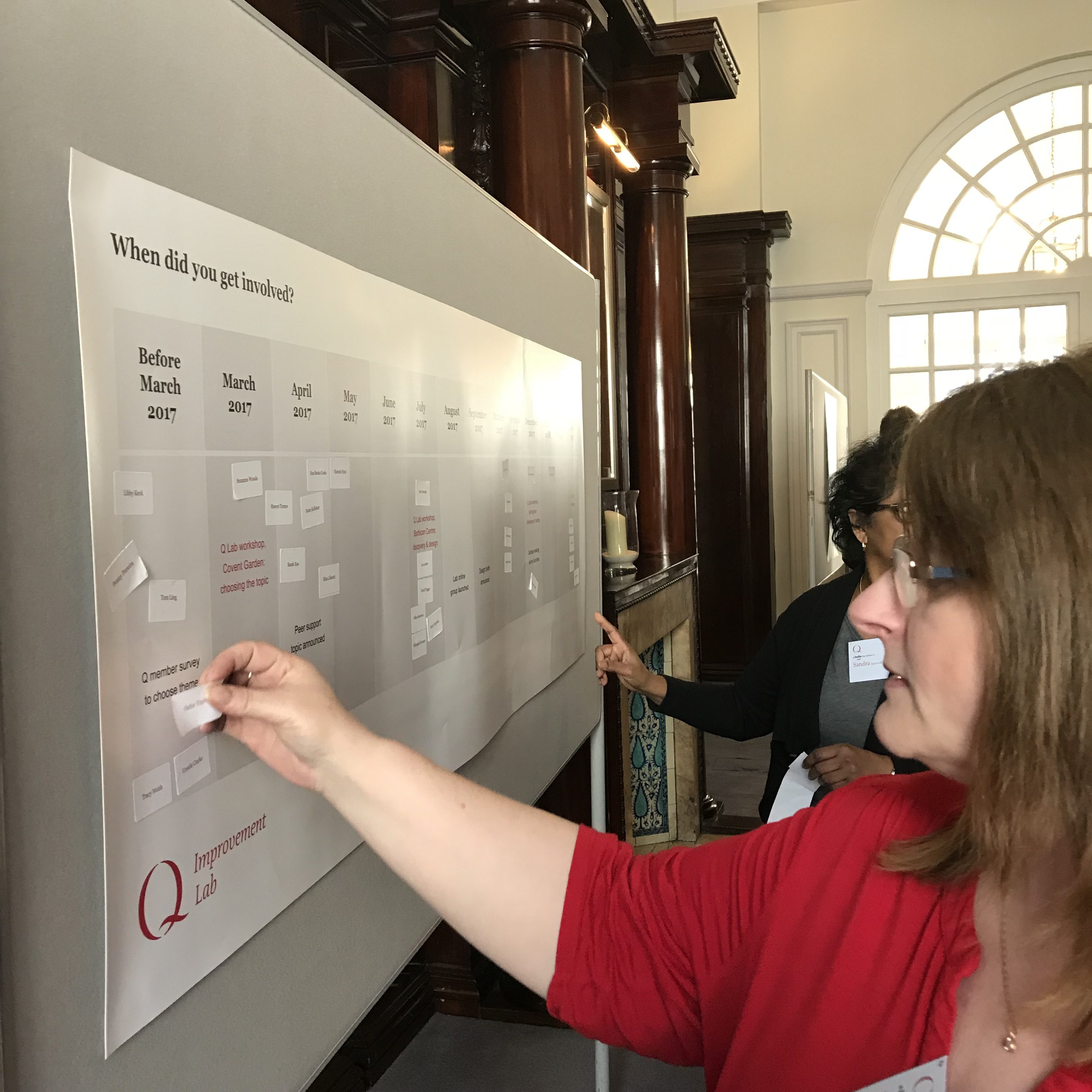
10:05 We’ve started!
We are starting the day by hearing from Q member and Lab participant Sarah Rae. In the spirit of today being about the people who make up the Lab, we thought it would be a great opportunity to hear about a Lab participant’s experience this year.
As a Q member, Sarah sees the Lab as key way of contributing to the wider Q agenda. Over the year she has also benefited from networking and meeting people with other skills and knowledge which she has been able to feed into her work. Sarah is also a trustee with MIND, who along with National Voices, the Lab is collaborating with on the peer support evidence portal.

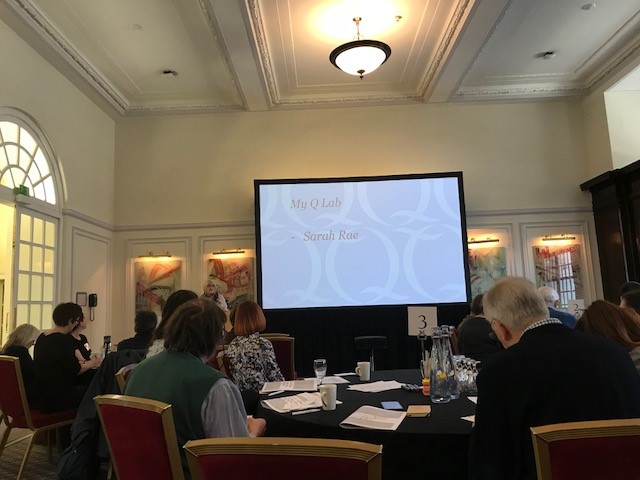
09:45 Registration
Our attendees have started arriving at BMA House. There’s chance to grab a coffee and some breakfast before the sessions start at 10.00.
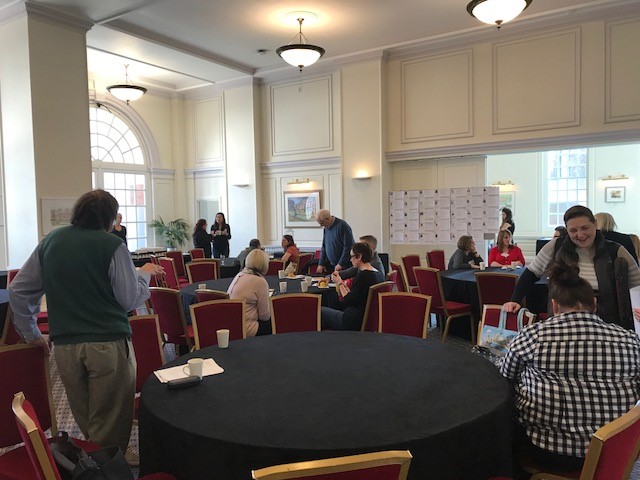
The sun is shining at BMA house today! We’re nearly ready for our final workshop on #peersupport. Follow the day using #QLabs and the live blog @theQCommunity pic.twitter.com/XN6MdSn0wV
— Zoe Brewster (@HeartyBento) March 21, 2018
9:39am: Why we’re here today
Tracy Webb outlines in this short video what the Lab has been working on over the past 12 months and why we’re bringing people together for the final workshop on peer support:
Q Lab workshop, 21 March – Why we’re here from The Health Foundation on Vimeo.
Before the big day…
Monday 19 March: A quick Lab recap
Many of you may already know what the Q Lab is and but for those who are new to Q and/or could do with a reminder, here is a quick recap:
- The Q Lab is part of Q and brings people together from across the UK to work and make progress on complex challenges in health and care.
- Working on a single challenge for a year, the Lab draws on disciplines such as design and behavioural science, and brings together Q members and others to draw on their collective expertise and experience.
- The first Q Lab challenge is a pilot, and is exploring what it would take for effective peer support to be available to everyone who wants it to help manage their long-term health and wellbeing needs.
There’s further information on our website.
We run regular workshops with Lab participants – people who have volunteered to contribute and collaborate with the Lab. You can take a look at the live blogs that we did in March, at a two-day workshop in July and our last workshop in December.
Feedback is always welcome! Either comment below or via Twitter (we’ll be taking over @theQCommunity using the hashtag #QLabs)
Monday 12 March: Final run-throughs
One piece of feedback that the Q lab team receives from our workshop is the high standard of design and ‘thought-through-ness’. Anyone who has run a workshop knows how much work is involved and run-throughs and ‘dress rehearsals’ really help to refine sessions and think about the experience of the workshop attendees.
Final run-through of the #QLabs final workshop on #peersupport next week. Lots of activities to make the most of what we’ve learnt, the new connections we’ve made & taking ideas forward. Exciting! pic.twitter.com/8OVKBY2QTU
— Jenna (@jen_collins) March 12, 2018